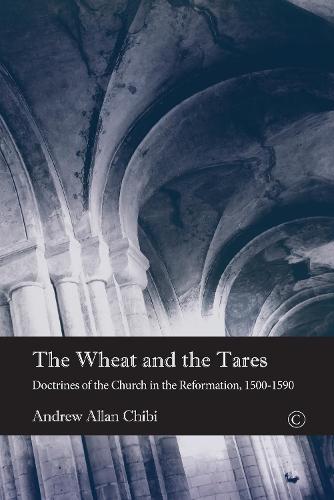Overview
Western Christians in the late Middle Ages were accustomed to living in a hierarchical Church - albeit one that had huge local differences and many divisions. Half a millennium later, that seeming unity has been shattered into tens of thousands of Christian denominations, each with its distinctive beliefs and structure. In The Wheat and the Tares, Andrew Chibi explores the era of the Reformation, showing how that unity was shattered in a few years. Chibi brings out the divisions that were simmering deep beneath the surface in the era before Luther posted his 95 theses attacking the sale of indulgences on the door of the Castle Church at Wittenberg, sparking momentous changes throughout Europe. The widespread recognition of the need for reform is seen through the eyes of Erasmus, the greatest scholar of the age. Exploring the writings of the main reformers about the Church, Chibi brings out the diverse ecclesiological ideas. Jesus's parable of the Wheat and the Tares for Zwingli and other reformers offered an image, as the reformers sought to rediscover the purity of the Church as God's gift.
Full Product Details
Author: Andrew A. Chibi
Publisher: James Clarke & Co Ltd
Imprint: James Clarke & Co Ltd
Weight: 0.726kg
ISBN: 9780227176382
ISBN 10: 0227176383
Pages: 502
Publication Date: 25 May 2017
Audience:
General/trade
,
General
Format: Paperback
Publisher's Status: Active
Availability: Available To Order

We have confirmation that this item is in stock with the supplier. It will be ordered in for you and dispatched immediately.
Reviews
Chibi's book is a study of the church and ecclesiology in the sixteenth century. He starts with the medieval church, and then considers the reformers, the Reformation churches and Counter-Reformation churches. Jesus' parable of the Wheat and the Tares... is applied to the churches - were the tares allowed to grow alongside the wheat, or did the church try to weed them out? This is a readable book for anyone interested in the church and history. - Ralph S. Werrell, Honorary Research Fellow, University of Birmingham and author of The Roots of William Tyndale's Theology (2013) and The Blood of Christ in the Theology of William Tyndale (2015) This is essentially a retelling of the Reformation through the lens of ecclesiology. It is an erudite and ambitious study that makes a significant contribution. I will very likely become of the standard studies on the topic in the field of Reformation studies. - David Barbee, http:readingreligion.org, December 2017 The study's strength lies in its extensive citations of reformers' arguments along with helpful summaries of their thinking within the contexts in which their doctrines evolved. Robert Kolb, Journal of Ecclesiastical History, 2018.
Chibi's book is a study of the church and ecclesiology in the sixteenth century. He starts with the medieval church, and then considers the reformers, the Reformation churches and Counter-Reformation churches. Jesus' parable of the Wheat and the Tares ... is applied to the churches - were the tares allowed to grow alongside the wheat, or did the church try to weed them out? This is a readable book for anyone interested in the church and history. -Ralph S. Werrell, Honorary Research Fellow, University of Birmingham and author of The Roots of William Tyndale's Theology (2013) and The Blood of Christ in the Theology of William Tyndale (2015)
"""Chibi's book is a study of the church and ecclesiology in the sixteenth century. He starts with the medieval church, and then considers the reformers, the Reformation churches and Counter-Reformation churches. Jesus' parable of the Wheat and the Tares ... is applied to the churches - were the tares allowed to grow alongside the wheat, or did the church try to weed them out? This is a readable book for anyone interested in the church and history."" -Ralph S. Werrell, Honorary Research Fellow, University of Birmingham and author of The Roots of William Tyndale's Theology (2013) and The Blood of Christ in the Theology of William Tyndale (2015)"
Author Information
Andrew Allan Chibi, whose work has appeared in many scholarly journals, is a freelance scholar and former Lecturer in Early Modern Europe at Leicester University. He is the author of The European Reformation (1999), Henry VIII's Bishops (2003), and The English Reformation (2004).




